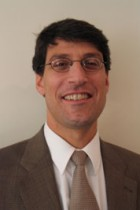Deprecated: trim(): Passing null to parameter #1 ($string) of type string is deprecated in /home/aoiusa/public_html/wp-content/plugins/sexybookmarks/public.php on line 388
Deprecated: trim(): Passing null to parameter #1 ($string) of type string is deprecated in /home/aoiusa/public_html/wp-content/plugins/sexybookmarks/public.php on line 394
Deprecated: trim(): Passing null to parameter #1 ($string) of type string is deprecated in /home/aoiusa/public_html/wp-content/plugins/sexybookmarks/public.php on line 400
Revised, October 6, 2010, 6:40am.
I don’t know why it is taking OCN all summer to release the lectures on Hellenism and Orthodoxy held at St. Vladimir’s Seminary symposium last spring, but another one was finally posted. Dr. James Skedros, the Michael G. and Anastasia Cantonis Professor of Byzantine Studies at Holy Cross Greek Orthodox School of Theology spoke on “Hellenism and Byzantium.” Lots of interesting stuff here, such as when “Hellenism” was first defined in opposition to the West and Turks (after the Fourth Crusade), when it was first used to define the Eastern Christian population and took on the meaning of cultural identity (after subjugation to the Turks) and so forth.
It’s a fascinating lecture, well prepared and presented. I wish it was longer.
One note: The shift to a political definition of “Hellenism” occurred between 1261-1453. Skedros argues this shift is still not complete. That’s true. We argue it here all the time, especially the most recent formulation as “Orthodoxy and Hellenism” that posits two parallel streams of cultural history. Of course I view the contemporary definition as erroneous because leapfrogs the Cappadocians and makes sense only in the political context of Muslim subjugation.
My view (and one that I think can be historically substantiated) is that to be Orthodox is to be a Hellene. It doesn’t matter if you are Greek, Russian, Romanian, or even Dutch or American. In contemporary usage however (you hear this mostly from Constantinopolitan quarters), the definition “Orthodoxy and Hellenism” really means to be an Orthodox of ethnic Greek extraction — again, a political distinction of some importance if you are living on a island in a Muslim sea, but otherwise doesn’t have any explanatory power or cultural significance beyond that.
This is not to say that Hellenism has no cultural significance (it does, which is why I say to be Orthodox is to be a Hellene). Rather, it says that the contemporary definition is actually a reduction of the former meaning. This is important because Orthodoxy is growing in the West and it is not bound by Muslim domination. Our job is to take the former precepts (in large part Orthodox precepts although carried into culture by Catholics and Protestants) and bring them into culture anew both to revive Western Civilization and strengthen the bulwarks that remain.
This requires a vision that will have to transcend the limits of ethnic exclusivity that the contemporary political definition imposes, yet at the same time recognize and draw from the historical and cultural legacy it purports to define. Put more simply, don’t throw out the baby with the bath water.
Listen here:
